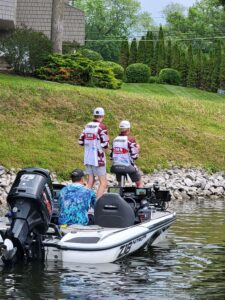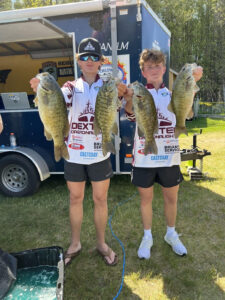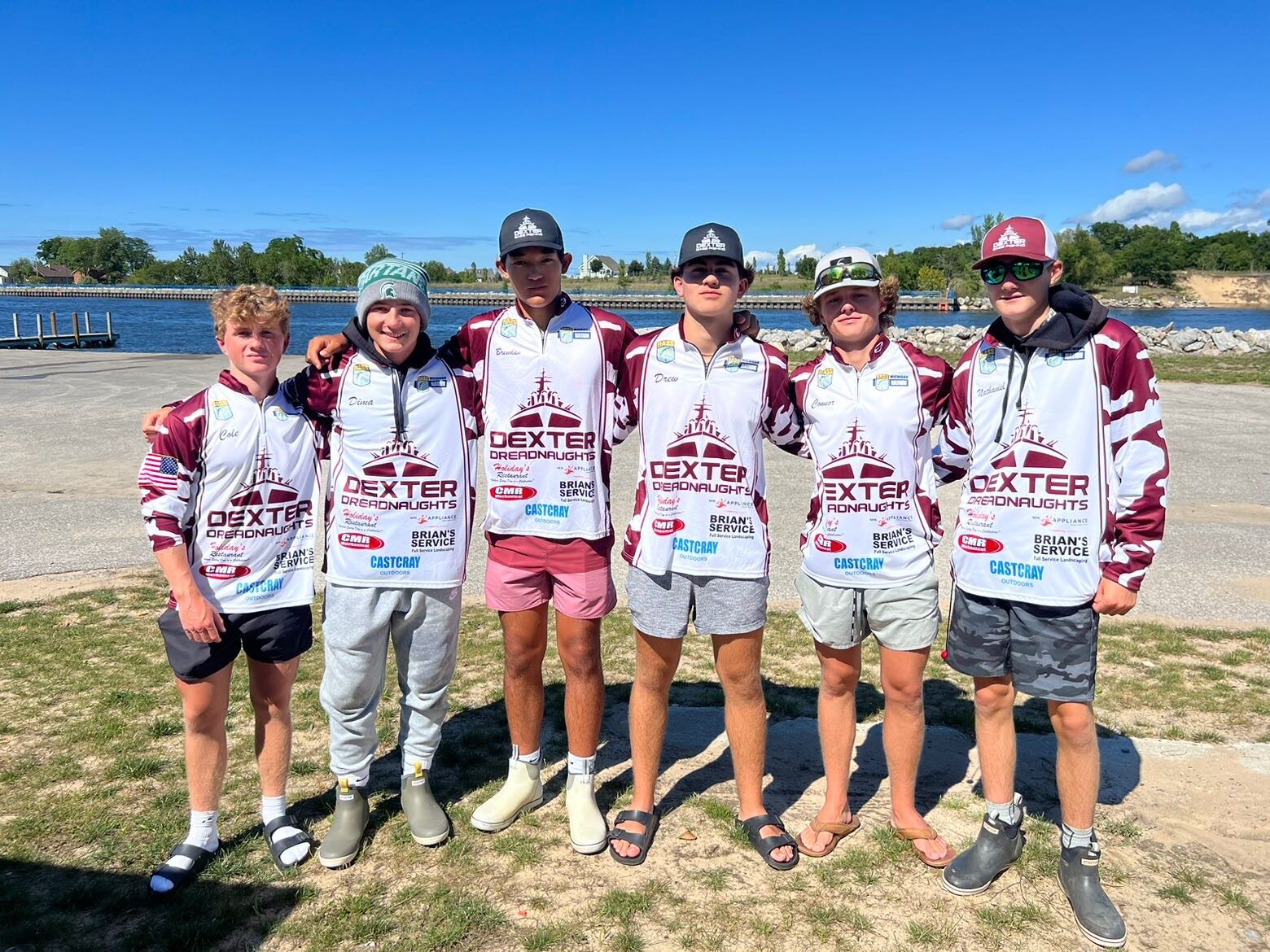An insider peek at the DHS bass fishing club’s history, experiences, and what is needed to succeed.
By: Sam Burgos
“I’ve been fishing all my life, and I guess you could say after I caught my first fish, I was hooked,” said Junior Dima Griffiths, with a slight chuckle and a parched expression. However, for Dima Griffiths and other DHS bass fishing team members, fishing is not just a chill weekend hobby. For two of the main founders of the fishing club, Nate Terbush and Griffiths, their zeal for fishing tournaments didn’t just happen overnight; rather, over the pandemic.
“What really sparked my mind to go after it and become a full-on hardcore angler and fish tournaments was COVID,” Terbush said. “There was nothing you could really do, so me and my boat partner Dima Griffiths decided it would be a good idea to pretty much go fishing every single day.” Over the pandemic, Terbush explained how the two obtained more skill and passion for fishing, inspiring them to form what we now know as the DHS bass fishing team.
“Me, Dima, and a few others… had the idea of fishing tournaments, but to fish tournaments, you’d have to be a club, and you have to represent a school… So we decided that we would ask Mr. Lindke in freshman year if he would be a representative… and that’s how we formed the club,” Terbush said. The club, however, has gone through some changes. “Now we’ve moved so that we’re our own individual club, and we don’t have to have a teacher representative, but we are still representing the school.”

Terbush, who formed the club along with Griffiths and others during their freshman year in 2021, noted that this is more than a two-person operation. Members are split up into partners on separate boats. Each boat has a captain, who is usually a parent, or a family member, who helps with coaching, scheduling, and other responsibilities. There are 3 main groups, which consist of the Racines [Connor and Cole Racine] and their dad, as well as Brendan Shinn and Jack Godfrey, whose captain is Brendan’s dad, and finally Terbush’s brother Jaccob, who is Nate and Griffiths’ captain. As far as tournaments go, “We fish anywhere from five to seven tournaments a summer and all around the state,” says Junior Connor Racine. The tournaments themselves are held by Michigan Bass Fishing High School Circuit, run by Bassmaster, a professional membership bass fishing organization.
The club, Nate explains, itself is run by the members and their families. Since the club is self funded, and there are limited boats, numbers are not high. There is a many factors to the team’s small roster. One huge reason is the amount of experience and sacrifice that is needed to be successful. “It’s not a cheap sport to get into. You’re talking nowadays, to buy a nice bass boat to even compete in tournaments… you’re talking at minimum 20 grand maybe… I mean, guys are paying upwards of 100-200 grand for a boat to compete in tournaments.” explains Terbush. Dima had a similar response as well: “countless trips to Cabela’s, spending money on lures, and even a boat, you know, it’s pricey.” It’s not just money we’re talking about here, either: “winning is very difficult. You need to have great skill, you need to be motivated. Because it’s hard, and it takes time, takes patience. There’s a lot of ups and downs; you’ll have bad tournaments, but you just gotta keep kind of pushing through.” Says Racine, who also explained how hours of preparation are required before tournaments if you are looking to succeed.
“You know, this sport isn’t for the weak. it’s all gas, no brakes on tournament morning.” – Dima Griffiths
Now after that, one would probably look at tournament fishing in a different light, but every member who was interviewed had positive answers when asked if the sacrifices made were worth it “I would say it’s definitely worth it and worth the memories. As my career unfolds, I’m planning to fish in college or professionally after high school. So I would say it worked out and definitely was worth it,” says Terbush, who is so passionate about the sport that he’ll possibly turn it into a living in the future. Griffiths looks back on the past, recalling his favorite memories which consist of, “Getting to spend some weekends with the friends off up north, and all around the state, having a great time.”

We all know what they say: “Give a man a fish and he’ll eat for a day. Teach a man how to fish, and he’ll eat for a lifetime.” In this case, however, it’s not only the fishing we’re talking about, but the sense of community that this small group has fostered. What started as a couple of guys who wanted to fish tournaments on the back end of the pandemic ended up to be a tight congregation of families and friends; Ultimately displaying the effect that a simple club like the DHS bass fishing club has on its members.

